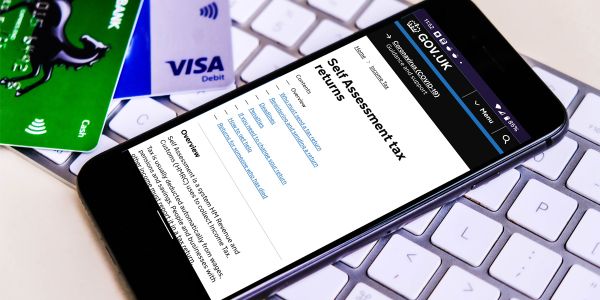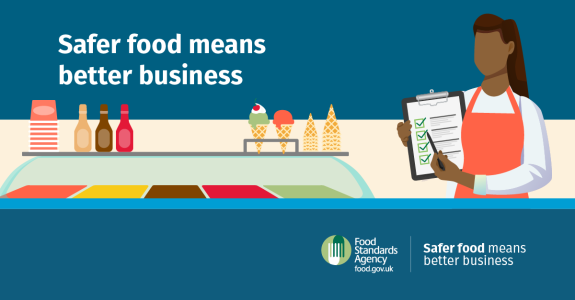- By Buckinghamshire Business First
- 13 January, 2026

Share by email
Ahead of the online filing deadline of January 31st, HMRC is urging people to file their tax return for the 2024-25 tax year, with lots of tools and resources available to help.
Firstly, beware of scams
Be aware of the risk of falling victim to scams that mention HMRC and tax returns. Never share your HMRC login details with anyone. HMRC provides advice on how to identify and deal with scams.
When is the Self Assessment tax return deadline?
This depends on how you submit your return:
- For online tax returns, the deadline is January 31st 2026.
- For paper tax returns, the deadline was October 31st 2025.
Important: January 31st 2026 is also the deadline for paying any tax owed. There’s usually a second payment deadline of July 31st if you make advance payments towards your bill (known as ‘payments on account’).
Penalties for late filing and paying tax owed
Penalties for late filing start with a fixed £100 penalty, with greater financial penalties coming after 3, 6 and 12 months, depending on how late the return is filed. There are also penalties for paying any tax owed late, with interest also charged on any tax paid late.
Check if you need to send a Self Assessment tax return
If you're not sure if you are still required to complete a Self Assessment return, you can check via this online tool and learn more details here.
People who sell via online marketplaces such as eBay and Etsy may also need to complete a tax return if they sell 30 items or more a year or have total earnings over £1,700.
How to submit your tax return
People can submit their tax returns and pay any tax owed by logging into their Government Gateway account on GOV.UK. You'll also need your Unique Taxpayer Reference number.
For details on how to log in, or how to set up a Government Gateway account if you have yet to do so, visit the 'File your Self Assessment tax return online' page on GOV.UK.
Are you completing a tax return for the first time?
You needed to tell HMRC by 5th October 2025 if you need to complete a tax return for the previous tax year and you have not sent one before.
If you tell HMRC after 5th October 2025, HMRC will send you a letter or email with a different deadline to send your tax return by - this will be 3 months from the date on the letter or email.
You can tell HMRC by registering for Self Assessment here. If you tell HMRC after 5th October 2025, you could get a penalty.
If you didn't send a tax return last year
If you’ve registered for Self Assessment before but did not send a tax return last year, you must register again to reactivate your account.
Are you a sole trader? Check what taxes may apply to you
Aimed at supporting new and existing sole traders to better understand their responsibilities, a new interactive tool from HMRC explains the records they may need to keep, taxes that may apply to their business, and other useful information such as how to pay a tax bill.
If you want the tax you owe to be collected from your wages or pension
You must have submitted your online return by December 30th if you want HMRC to automatically collect tax you owe from your wages and pension. Find out if you are eligible to pay this way.
Need help with your tax return?
There are lots of tools and resources available to help, including:
- HMRC's digital assistant - the assistant will help you find information, and if you can’t find what you’re looking for you can ask to speak to an adviser
- Guidance notes and help sheets with a wealth of information
- A series of video tutorials
- Live and recorded webinars:
- Download the HMRC app
- Subscribe to HMRC email updates for the latest information on Self Assessment
Do you need technical support?
Find technical support for help signing into HMRC online services.
Do you need extra or specialist support?
You can get extra support if your personal circumstances make dealing with taxes and tax returns difficult. For example, if:
- you have dyslexia, autism or cognitive difficulties
- you have reduced mobility or physical disabilities
- you have sensory disabilities, like a visual, hearing or speech impairment
- you have mental health conditions, like depression, stress or anxiety
- you’re experiencing financial hardship - for example you cannot afford essentials like food, bills or rent (you may be able to pay in instalments)
- you’re a victim of domestic abuse, including economic abuse
- you're a refugee or migrant
- English is not your first language and you require an interpreter
- you’re receiving treatment in hospital
For support on the above, you can contact a voluntary or community sector organisation who can provide you with help and advice, or contact HMRC via the links here.
Making Tax Digital for Income Tax
Check if you need to use the Making Tax Digital service from April 2026 to report your self-employment and property income.
You’ll need to use Making Tax Digital for Income Tax if all of the following apply:
- You’re a sole trader or a landlord registered for Self Assessment
- You get income from self-employment or property, or both
- Your qualifying income is more than £20,000 — read more about what qualifying income is and what is included
When you need to start using Making Tax Digital for Income Tax depends on your qualifying income within a tax year. If your qualifying income is over:
- £50,000 for the 2024 to 2025 tax year, you will need to use it from 6th April 2026
- £30,000 for the 2025 to 2026 tax year, you will need to use it from 6th April 2027
- £20,000 for the 2026 to 2027 tax year, the government has set out plans to introduce legislation to lower the qualifying income threshold







